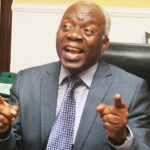In 2005, my friend and I visited the newly opened Oasis Bakery in Maiduguri to taste their cinnamon bread. We exchanged pleasantries with the staff at the counter and pointed at what we wanted. After writing everything on a notepad, she gave us our bill and proceeded to call her superior.
‘Master, please come and give them their receipt.’
We thought she was joking until the Chinese man, who was obviously in charge, emerged, collected our money, and issued us a receipt. Thinking it was some kind of inside joke, my friend asked the young girl behind the counter if she had really called him ‘Master’. I have not forgotten her reply: ‘They asked us to call them ‘Master’, if not dem go sack us.’
Master? For real? Are we still in the 1915s? What is this- some sort of slave trade? We left the place, appalled.
It was, therefore, not surprising when in 2007, Daily Trust reported that the two Chinese men, who owned and operated Oceanic Bakeries in Wuse District of Abuja, were arrested for abusing the rights of Nigerians working in their bakery. A situation where Nigerian workers were caged like animals near an oven in the bakery and were required, when thirsty, to beg their Chinese manager who would not let them out to drink water, reflects the type of inhuman conditions employees are subjected to.
However, this article is not about the working conditions of Nigerians; instead, I seek to address occupational health as it pertains to employees in public and private institutions headed by both Nigerians and non-Nigerians.
Occupational Health is a branch of medicine that focuses on the wellbeing of employees in an organisation as well as the treatment of work-related injuries and illnesses. In Nigeria, Occupational Health practitioners are few and are mostly engaged in multinational and large national establishments and medical schools. There are a few independent consulting firms, especially in Lagos and Port Harcourt, which provide services to medium and large-scale industries. Workers in small-scale industries, particularly those in the informal sector, therefore, have little or no access to occupational health services.
The Society of Occupational Health Physicians of Nigeria has approximately 90 members comprising occupational health specialists and general practitioners engaged in the industry. Physicians specialising in occupational medicine are currently within the Faculties of Public Health and Community Health in the National Postgraduate Medical College of Nigeria and the West African College of Physicians, respectively. Other occupational health groups include the National Industrial Safety Council, which includes safety professionals and the Occupational Health Nurses Association of Nigeria.
An employer is required to protect the health and safety of workers at the workplace in accordance with the provisions of the Factories Act and Labour Law. It is obligatory for the employer, underemployment contract to provide a safe system and place of work and to take measures to ensure the safety of the worker. Generally, these health and safety laws are applicable only to factories.
Since the commencement of the NHIS, most government organisations like NAFDAC, NESREA, FIRS, NPF, tertiary institutions and hundreds of others in Nigeria, have since enrolled their employees, thereby addressing their health needs. Since most jobs are administrative, work related injuries are therefore minimal. However, the problem lies with those requiring extra care, which is not within the scope of the NHIS. These employees are therefore forced to look elsewhere to source for funds. Very few government organisations like CBN, NNPC, DPR and the likes, provide state of the art clinics with qualified medical staff with adequate coverage. But what is the percentage of people who work there? Miniscule. And this is just about for routine medical care. As for work-related injuries, getting government compensation is akin to your babalawo asking you to get lion’s blood. It is war, I tell you.
Last year, I met a civil servant who worked for the National Emergency Management Agency (NEMA). He had become deaf following a bomb blast in the north eastern part of the country. The young man, along with several of his colleagues had gone to distribute relief materials in the IDP camps when a bomb detonated close to them. He survived, albeit with an injury to his eardrums, rendering him deaf. The ENT doctors had prescribed hearing aids, but of course the man could not afford them. Countless letters had been written with the same response: the organisation had no money.
As for those working in private organisations, occupational health is quite frankly- a myth. With the exceptions of Multinational companies like Shell, Chevron etc, you are what Nigerians[FM1] term: “OYO- On Your Own”. High to mid-level organisations like banks usually have what is called a medical retainership. The banks liaise with private HMOs or directly with private hospitals, which caters to their staff while paying a monthly retainer. And while this relationship is largely symbiotic and therefore favours both parties, problems arise when huge bills mount or when there is a work-related injury.
In the early nineties, I remember my friend’s father, a known hypertensive who suffered a stroke at work. The bank insisted he come to work for six days a week (this was during the time of Saturday banking) despite having a BP of 170/100 consistently. We were children and, therefore, could not comprehend the magnitude of the problem. I only remember that he was bedridden for almost four years after which he died, a pauper. Now as a doctor, I realised the bank had been unfair in asking a man with uncontrolled hypertension to come to work daily from 8am to 6pm, six days a week. His wife told me he was denied sick leave several times and that the bank had stopped paying for his medical bills shortly after the stroke. He was, of course of no use to them by then.
The truth is that there are numerous stories like these and many more are likely to occur until the law is obeyed. The Factories Decree 1987 was a landmark in legislation in occupational health in Nigeria. A substantial revision of the colonial legislation, Factories Act 1958, the 1987 decree changed the definition of a factory from an enterprise with 10 or more workers to a premises with one or more workers thereby providing oversight for the numerous small-scale enterprises that engage the majority of the workforce in Nigeria. The current legislation is the Factories Act 1990, which in essence is the same as the 1987 legislation. Enforcement of legislation is carried out by the Factory Inspectorate of the Ministry of Labour. This Ministry produced a National Policy on Safety and Health in 2006, which details the responsibilities of employers, workers, manufacturers and government agencies in the maintenance of the health and safety of workers.
Additionally, employees should be educated on their rights in the work place so as to prevent utterances like ‘I leave them with God’ and ‘Allah ya isa.’ Yes, God is the supreme judge but before we reach the hereafter, let us lessen the burden on ourselves.
Las las, for this Buhari Era, every Naira must count!

 Join Daily Trust WhatsApp Community For Quick Access To News and Happenings Around You.
Join Daily Trust WhatsApp Community For Quick Access To News and Happenings Around You.


